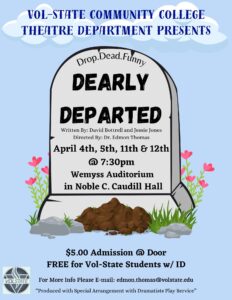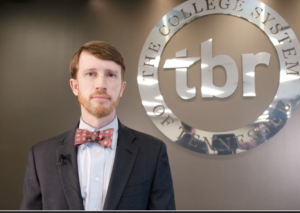Last updated on March 25, 2015
by Lauren Cieler// Staff Writer
Students, faculty and staff at Volunteer State Community College were welcome to attend a lecture on March 2.
The event took place in the Rochelle Center in the Thigpen Building at 12:20 p. m.
The speaker was Dr. Carole Bucy, professor of History.
“This lecture is to provide more awareness of the subject of marriage inequality as part of the Civil Rights movement that still contours today,” said Bucy.
The history department has a grant from the Gilder-Lehram Foundation to do a series of lectures associated with films that are about the Civil Rights movement.
Bucy had four people from Vol State come in and sit on a panel to answer questions from herself and students.
These people were; Dr. Emily Short, assistant vice-president of Student Services and her husband Cedric Short; Dr. Michael Torrence, assistant vice-president of Academic Affairs; and Amber Hughes, a nursing major.
Each person told their backstory and how he or she dealt with interracial equality.
Dr. Short and Cedric have been married for nineteen years and have a daughter.
Dr. Short is from Westmorland, Tenn, a predominantly white community.
Dr. Short said she first told her friend that Cedric had proposed to her and her friend said, “You need to tell your mom.”
Although Dr. Short’s mother did know about Cedric, Dr. Short said her mother did not like the concept of a biracial marriage.
Cedric said remembered how he met his wife.
Cedric said in the mid 90s, he was a student at Vol State while Dr. Short worked in Student Services. He said he did not want to talk to her, but one day he finally had the courage to say hello.
As soon as he graduated he made his move and later on started dating.
Cedric said when he proposed to Dr. Short, he first told his younger brother, Marvin.
He said Marvin’s response was, “Did you tell dad yet? You need to tell him now.”
“My dad had a chilly response and was caught by surprise,” said Cedric.
Dr. Short’s family did not come to the wedding, which she said was a heavy rejection.
“I was preparing myself for no in-laws, but when my daughter was born everything changed,” said Cedric.
Torrence has been married for eight years and has two children.
Torrence said was in college when he first saw his wife.
“I was in my advisor’s office and I look out the window and saw red hair bouncing in the sunlight across the Quad,” said Torrence.
When the time came to propose to his wife, Torrence said he went to her brothers and they respected the decision he had made.
He said he asked her father and the father shrugged and said okay.
Torrence said both his children have had the privilege of being accepted and active in sports.
He has only dealt with one mishap of biracial inequality.
“There was a man in church that told my wife and daughter that they didn’t belong here and to get out,” said Torrence.
Amber Hughes said she has been married for 12 years and has three children.
She said when she first met the man she was going to marry, she was 17 and her husband was 23. Hughes said they had to keep their relationship as a secret because of their age difference.
Hughes and her husband met in the food court at the same mall.
His sister was Hughes’ boss.
Hughes said when she got engaged, she told her best friend who was concerned about the age difference.
Her family was not supportive, but her aunt stepped up to help with the wedding.
Hughes’ husband is African American and Hispanic and she said his parents were okay with him marrying her.
One encounter the Hughes said she had with biracial inequality was when she was looking for rent. She said when she was about to fill out the application, the clerk said that he doesn’t rent to African Americans/Hispanics. Hughes said she picked up her purse and walked away.
In the comment and question section of the lecture, Bucy proposed a question.
“What do you think can be done to promote tolerance and understanding among people in 2015? What can be done to improve racial tolerance?” said Bucy.
“To get out of his or her environment; too see something different; to meet people from different backgrounds,” answered Torrence.
Dr. Short said that what works well for her family is that they have open dialogue about racial equality and to learn about each other’s culture answered
“Parents should educate their children in biracial equality,” answered Hughes.
“I think if we learn to accept one another and live our lives everything will be better,” said Patty Powell, vice president of Student Services.




Comments are closed.